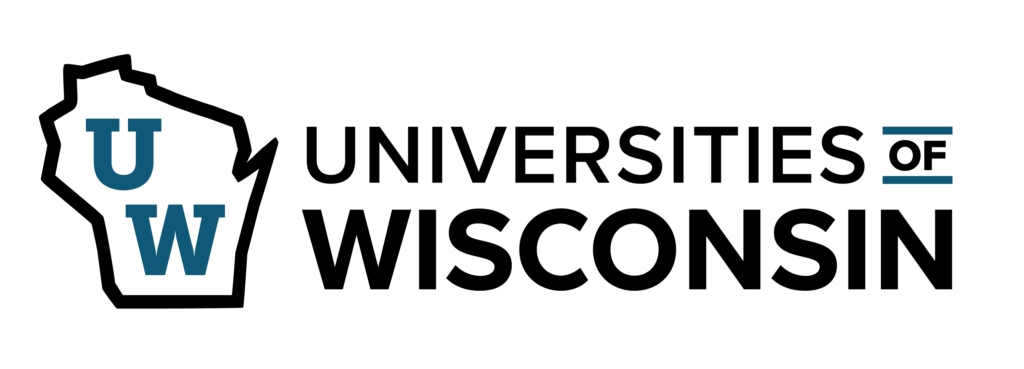UW System continuing progress addressing student behavioral health needs
MADISON, Wis.—The University of Wisconsin System and its 13 universities, in continued response to a priority of the Board of Regents, are implementing and funding improvements to student behavioral health services while other changes remain in process.
“The Board of Regents understands the high importance of student well-being, and we appreciate the heightened progress our universities and the System have made while recognizing there’s more work to do,” said Andrew S. Petersen, Regent President. “I’m glad our universities are taking these steps. I pledge the Board of Regents’ full support.”
Regents also heard from two students who had used campus counseling services. Both credited the services with helping keep them healthy and enrolled.
In April 2019, students and university officials described for the Board of Regents the breadth of behavioral health needs of students. Since then, three strategic workgroups of professionals from across UW System campuses have developed recommendations to enhance services and have begun implementing them. They include:
- Creating a comprehensive UW System behavioral health website and hiring a UW System Student Behavioral Health Coordinator.
- Adopting SilverCloud, the online behavioral health assessment and treatment tool for depression, anxiety, stress, and sleep.
- Adding the Suicide Prevention Lifeline on the back of student ID cards.
- Using the UW System Counseling Impact Assessment Project to assess counseling use and impact on campuses.
“I will always advocate for our students. While I am pleased with our progress, so long as there is a need I will not be satisfied,” System President Tommy Thompson said. “We know the pandemic has made everyone’s life harder and we will continue to do our best to provide the services students need.”
Other efforts are in process, including cultural competency training for campus counselors and other campus professionals and a new medical withdrawal policy that would allow students more leeway in stepping away from their studies when a medical or behavioral health condition renders them unable to remain enrolled.
The UW System has also identified a need for additional campus counselors; mental health awareness training for students, faculty, and staff; and membership in the National Behavioral Intervention Team Association.
Officials also discussed the Counseling Impact Assessment Project with Regents. The survey of students who sought counseling found:
- Anxiety, depression, and stress are the leading reasons students seek counseling.
- Four in 10 students said they experienced trauma in their lives, four in 10 said they experienced harassment or abuse, and one in four said they felt the need to reduce alcohol consumption.
- One in three students have injured themselves, and more than one in ten attempted suicide in their lifetimes.
- Nearly 80 percent reported counseling helped them improve their well-being, and more than 70 percent said they became better prepared to handle future concerns and achieve goals.
- More than 90 percent would recommend counseling, and more than 70 percent said counseling helped them stay in school.
Overall, the number of students who used counseling services, more than 14,000 in 2019–2020, increased by 15 percent over the last five years. Usage was down slightly last academic year compared to the previous year as universities moved to online-only instruction in March and counseling centers scrambled to secure the training and infrastructure to add telecounseling to their service offerings. Telecounseling is now standard for the Fall 2020 semester as part of safety practices implemented on campuses due to COVID-19.
NOTE: This press release was submitted to Urban Milwaukee and was not written by an Urban Milwaukee writer. While it is believed to be reliable, Urban Milwaukee does not guarantee its accuracy or completeness.
More about the Coronavirus Pandemic
- Governors Tony Evers, JB Pritzker, Tim Walz, and Gretchen Whitmer Issue a Joint Statement Concerning Reports that Donald Trump Gave Russian Dictator Putin American COVID-19 Supplies - Gov. Tony Evers - Oct 11th, 2024
- MHD Release: Milwaukee Health Department Launches COVID-19 Wastewater Testing Dashboard - City of Milwaukee Health Department - Jan 23rd, 2024
- Milwaukee County Announces New Policies Related to COVID-19 Pandemic - County Executive David Crowley - May 9th, 2023
- DHS Details End of Emergency COVID-19 Response - Wisconsin Department of Health Services - Apr 26th, 2023
- Milwaukee Health Department Announces Upcoming Changes to COVID-19 Services - City of Milwaukee Health Department - Mar 17th, 2023
- Fitzgerald Applauds Passage of COVID-19 Origin Act - U.S. Rep. Scott Fitzgerald - Mar 10th, 2023
- DHS Expands Free COVID-19 Testing Program - Wisconsin Department of Health Services - Feb 10th, 2023
- MKE County: COVID-19 Hospitalizations Rising - Graham Kilmer - Jan 16th, 2023
- Not Enough Getting Bivalent Booster Shots, State Health Officials Warn - Gaby Vinick - Dec 26th, 2022
- Nearly All Wisconsinites Age 6 Months and Older Now Eligible for Updated COVID-19 Vaccine - Wisconsin Department of Health Services - Dec 15th, 2022
Read more about Coronavirus Pandemic here






















